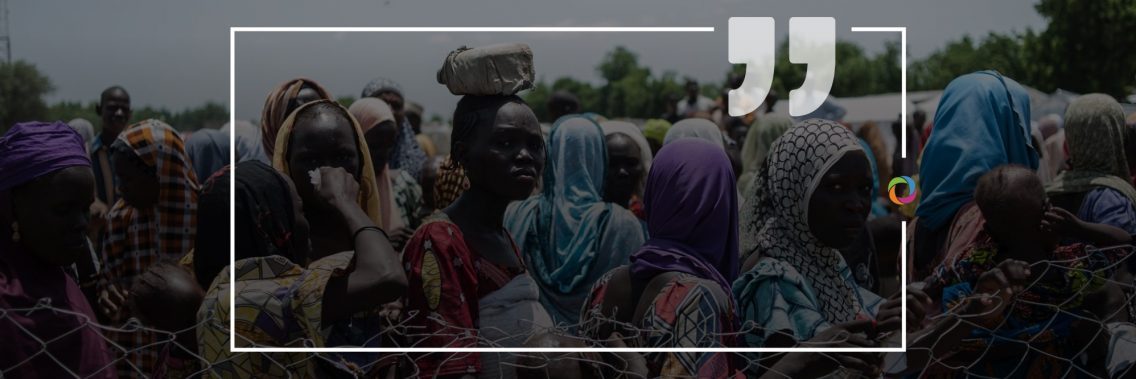“Finish your plate, there are people starving in other parts of the world!” is a phrase often heard by children living in wealthy countries. Little do they know that the meal they “waste” cannot be delivered to starving communities as the process is far more complex than one can imagine. However, there is something that wealthier nations can do to help the hungry – provide funding for organizations such as the World Food Programme (WFP). However, it has emerged that something has gone wrong in this relationship as the WFP has warned that it may soon be forced to cut food rations to more than half a million women, men, and children in north-eastern Nigeria. The organization says that unless urgent funding is secured to continue life-saving operations in crisis-ridden Borno, Yobe, and Adamawa states, local communities will face significant changes. We discussed this issue with several international consultants. Check out their insights below.
Key Takeaways
- The United Nations World Food Programme (WFP) has warned that it may soon be forced to cut food rations to more than half a million women, men and children in north-eastern Nigeria.
- Prices for basic food products are expected to sky-rocket, the number of underpaid low-skilled laborers as well as unemployed people will grow.
- Armed groups may gain control over peaceful populations in affected states
- Securing the supply routes that are targeted by insurgents is a priority to ensure food aid reaches the beneficiaries

“Currently, the price of food items has significantly increased even in this harvest period when, in an idle situation, the prices are expected to drop. Businesses and other means of livelihood have deteriorated due to the impact of COVID-19 and the high demand for food which drained the resources meant for investment. It was estimated that 5.1 million people would be food-insecure in 2021 in Borno, Adamawa, and Yobe states. These include girls (31%), boys (25%), women (24%), and men (20%). These are categorized under IDPs (36%), host community (31%), inaccessible/hard-to-reach (16%) and returnees (17%). For 2021, about 52% of the 5.1 million people in need are in Borno state followed by Yobe and Adamawa respectively. As indicated by WFP, it may soon be forced to cut off food rations for more than half a million women, men, and children in north-east Nigeria due to limited funding. The consequences that may result from this forecast may cause the following:
- Many people in north-eastern Nigeria, especially IDPs, may resort to negative coping strategies such as street begging or going to the bush to find wild food which can further expose them to attack
- The rates of burglaries and theft are likely to increase because of the struggle for survival (especially those who do not have anything to eat)
- Cases of prostitution and gender-based violence may increase as many women and girls would be willing to give their bodies in exchange for food
- It may result in further conflict among the populations of communities on food as resources may be limited or overstretched
- The rate of malnutrition and even death among children under five may increase significantly
- Limited opportunities for businesses/livelihoods as profits and revenues are diverted from development to basic food needs. This may result in the deterioration of the economy in the region.”

“Should the WFP end up cutting food rations to more than half a million women, men, and children in north-eastern Nigeria, food insecurity will increase as will the number of vulnerable populations in the region. Indeed, in May 2021, north-eastern Nigeria and the Lake Chad Basin witnessed many events that impacted on security, politics, and humanitarian response. Besides, the economic impact of COVID-19 continues to affect the displaced population, most of whom are very vulnerable. Also, the FAO indicates that the latest Cadre Harmonisé analysis (March 2021) points to 9.2 million people countrywide facing crisis or worse levels of food insecurity (March–May 2021), of whom 3.2 million are in Adamawa, Borno, and Yobe states. Of a greater concern is that this figure was expected to increase to over 12.8 million people, of whom 4.4 million were in the three north-eastern states, during June–August 2021, unless resilience-focused and humanitarian actions were taken.”

“Reducing food assistance will be a painful decision, as it will have a negative impact on children, women, and men uprooted from their homes as a result of the continuing violence. Reducing rations means choosing who will eat and who will go to bed hungry. These cuts come as the hunger crisis peaks after five years in the country following years of conflict and insecurity. Continued attacks on communities by non-state armed groups, the harsh lean season conditions in an economy grappling with the fallout from the novel coronavirus, high food prices, and the sharp reduction in purchasing power of the households are all contributing to clouding the outlook for the most vulnerable people in north-eastern Nigeria.”

“In a region where millions suffer from starvation, food assistance is a lifeline and plays a vital role in saving lives. A decrease in ratios involves a fewer number of people covered by the program and can lead to the loss of lives due to starvation and associated nutrients deficiency diseases.”

“The main consequences will be the impoverishment of those displaced, as well as a general worsening of the situation within the poorest communities. The impacts will be the collapse of the economy, rising costs of basic food products, increased demand for cheaper unskilled labor, growing unemployment rates, a decrease in the quality of existing services, the destruction of the social fabric (solidarities, values), and the control by armed groups over the population (soldiers, human rights violations, especially against children and women).”

“Any changes in food assistance will have unprecedented consequences. The food systems and production in north-eastern Nigeria have collapsed with food production next to nothing. Farmers risk their throats being slit by terrorists, whereas some of them are forced to pay levies before they are allowed to access their farmlands. Nearly 10.6 million people need urgent assistance, but only 7.8 million can be accessed. Food is a weapon for peace and remains a critical part of post-conflict reconstruction.”
What should the international community do to mitigate the situation?

- “There is a need for the international community to provide more funding for food security, nutrition, livelihood, agriculture, peacebuilding, small arms and light weapons risk education for the affected populations, especially among the IDPs in north-eastern Nigeria
- Strengthening national, state, and local capacities to enable them to look inward and offer solutions to the problem of food insecurity in the region, and Nigeria as a country
- Allocate funding to advocate for reforms in relation to food security at the national country level
- Need for more research/assessments or funding to identify issues and effective approaches and solutions to address food needs.”

“The immediate solution is for the international community to find the means to address WFP’s motive for resorting to food cuts and that is to contribute to the mobilization of the necessary funding to continue life-saving operations in crisis-ridden Borno, Yobe and Adamawa states, mostly in the form of grants. For instance, through the African Development Bank, the donors could tap into the African Development Fund, as was done in the context of Ebola. Moreover, leading agencies/bodies working in fragile states should contribute to the mobilization of the required funding. Some of these agencies are the Australian Department of Foreign Affairs and Trade (DFAT, former – AusAID), the UK’s Foreign, Commonwealth & Development Office (FCDO, former DFID), the OECD Development Assistance Committee (DAC), selected UN agencies, USAID and the World Bank Groups in Low-Income Countries Under Stress (LICUS).”

“There is a need to ensure the safety of supply routes which are targeted by insurgents, this must take priority in order to ensure food aid reaches the targeted groups. However, the international community should work to raise US$58 million in order to keep the supply of food aid in the region as well as increasing efforts to build peace by initiating roundtable negotiations between the insurgents and government to identify a long-term solution and allow the community to establish production systems and be more resilient.”

“The crisis is an opportunity to innovate and respond to the needs of the displaced populations by creating a favorable context for local development in Borno, Yobe, and Adamawa states. In this misfortune, displaced populations still have the advantage of being in their own country. A sustainable vision is required to be designed and conducted. Specifically, determine the existence, the readiness, and availability of mechanisms such as food banks with a subsidized and affordable consumer price for the poorest populations including the displaced, supply, distribution system and transport, ways and means of improvement of local, national response: potentials, solidarity mechanisms (reinforced donations, urgent contributions from local and federal states budgets).”

“A global nested approach focusing on risk-based strategies including continuous food supplies and inclusive policies and interventions that build resilience to shocks is needed. A well-targeted and effective response following shocks, with the potential to defuse grievances by limiting the breadth and depth of their consequences, is also a must.”
Check out more than 40 job opportunities in the Food Security sector here.

